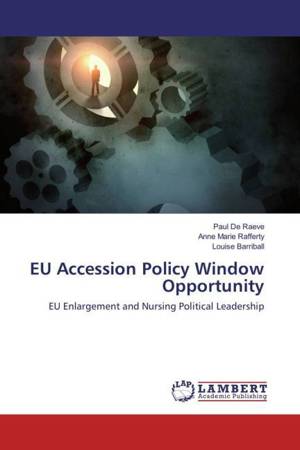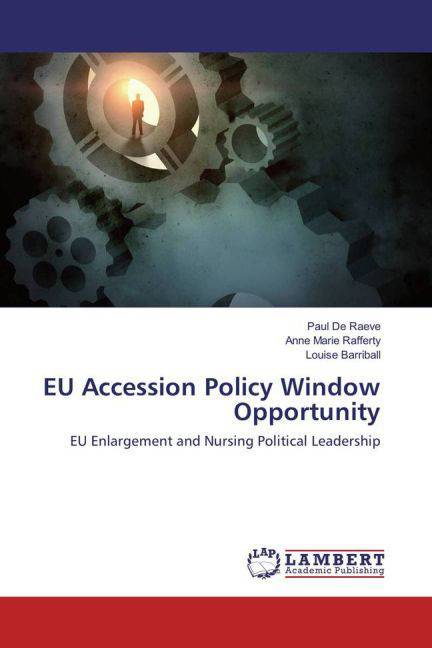
Door een staking bij bpost kan je online bestelling op dit moment iets langer onderweg zijn dan voorzien. Dringend iets nodig? Onze winkels ontvangen jou met open armen!
- Afhalen na 1 uur in een winkel met voorraad
- Gratis thuislevering in België vanaf € 30
- Ruim aanbod met 7 miljoen producten
Door een staking bij bpost kan je online bestelling op dit moment iets langer onderweg zijn dan voorzien. Dringend iets nodig? Onze winkels ontvangen jou met open armen!
- Afhalen na 1 uur in een winkel met voorraad
- Gratis thuislevering in België vanaf € 30
- Ruim aanbod met 7 miljoen producten
Zoeken
EU Accession Policy Window Opportunity
EU Enlargement and Nursing Political Leadership
Paul De Raeve, Anne Marie Rafferty, Louise Barriball
Paperback | Engels
€ 97,45
+ 194 punten
Omschrijving
European enlargement has been studied in a wide range of policy areas within and beyond health. Yet the impact of EU enlargement upon one of the largest health professions, nursing, has been largely neglected. We therefore explore the nurse leadership using a comparative case study method in two former Communist countries, Romania and Croatia, aiming to analyse the extent to which engagement in the EU accession policy-making process provided a policy window for the nurse leaders to formulate and implement a professional agenda while negotiating EU accession. An ethnographic design involving qualitative interviews and documentary analysis was adopted. Findings indicate that the mechanisms used to facilitate the accession process were not successful in achieving compliance with the education standards in the Community Acquis. Moreover, EU accession capacity building and accession funds were not deployed efficiently to upgrade nursing education towards meeting EU standards. Findings indicate that the conflicting views on compliance held by the various nursing leaders inhibited the setting of a common policy agenda leading to successful policy outcomes.
Specificaties
Betrokkenen
- Auteur(s):
- Uitgeverij:
Inhoud
- Aantal bladzijden:
- 640
- Taal:
- Engels
Eigenschappen
- Productcode (EAN):
- 9783659976728
- Uitvoering:
- Paperback
- Afmetingen:
- 150 mm x 220 mm

Alleen bij Standaard Boekhandel
+ 194 punten op je klantenkaart van Standaard Boekhandel
Beoordelingen
We publiceren alleen reviews die voldoen aan de voorwaarden voor reviews. Bekijk onze voorwaarden voor reviews.











